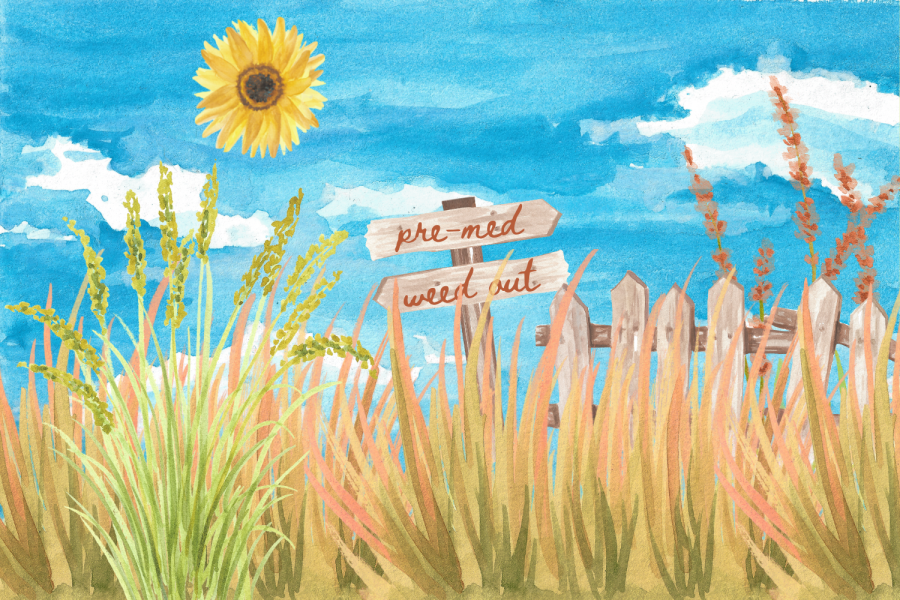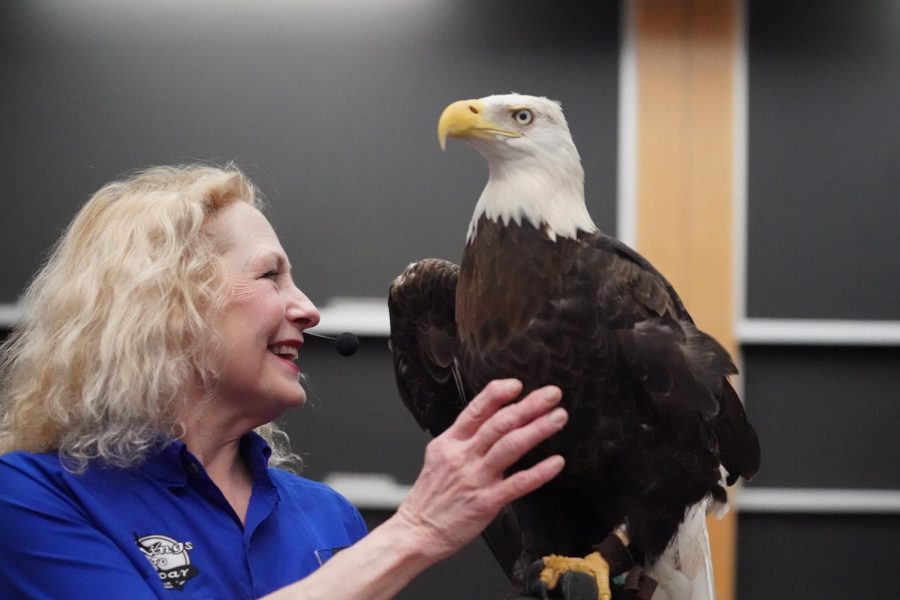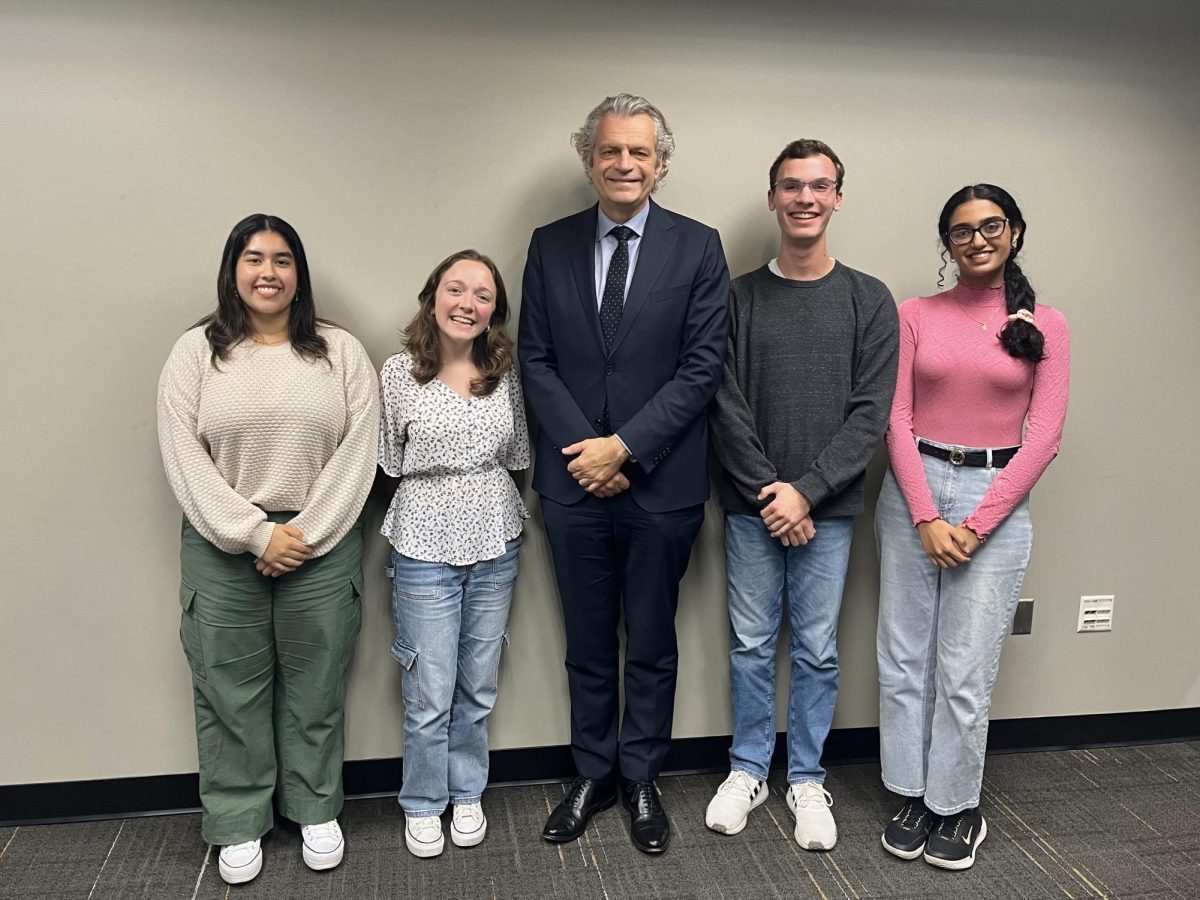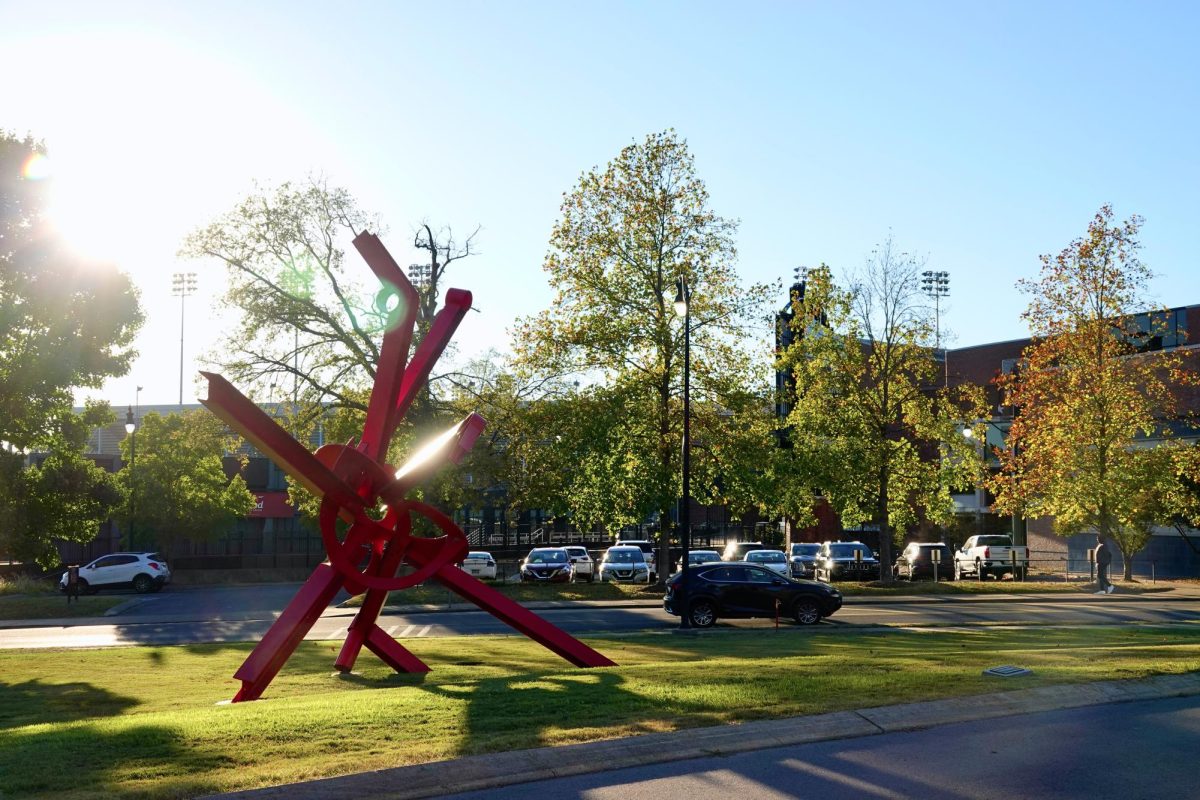I have been a Vanderbilt faculty member for over 20 years. In that capacity, I have acted as a principal investigator in scientific research and have mentored/trained undergraduate and graduate students. During this time, I have had the privilege and pleasure of working with many outstanding students who have brought together their passion for scholarship with a commitment to excellence that exemplifies all the very best about academic life. I have also been an instructor in both large, medium and small venue courses in the Department of Biological Sciences, which notably include the gateway Introduction to Biology course. This course is often, and in my view erroneously, characterized as a “weed-out” course for pre-med undergraduates and STEM majors.
Along with many of my colleagues, I have become increasingly concerned by a growing trend among students across education levels and disciplines—including those at Vanderbilt—to see higher education as an entitlement to grades and degrees. This belief pushes back against long-held principles of academic rigor, excellence and free expression. I consider many of these efforts to chillingly co-opt and otherwise exploit invaluable advances toward greater diversity and inclusion. In my opinion, this pattern has effectively led to the suppression of constructive criticism and debate, as well as—more egregiously—the abdication of honest, objective assessments that I believe are at the heart of a rigorous quest for learning and excellence.
Many scholars have begun to study this problem, characterizing it as the “infantilization” of higher education. In his 2016 article titled “What’s Happened to the University? A Sociological Exploration of its Infantilisation,” Frank Furedi, who studies “precautionary culture and risk aversion in western societies,” posits that students are being continually maintained within an “eternal dependency.” This phenomenon leads to a higher education philosophy that primarily values self-esteem and continuous emotional validation at the expense of excellence, professionalism and rigor. This standard does not consider students as fully emancipated and empowered adults but rather as existing in a continually extended period of childhood. This subject is highly contentious and encompasses debates about academic freedom of expression at universities related to microaggressions, safe spaces, trigger warnings and intellectual intolerance that have increasingly been in the news.
To appreciate that this problem is not unique to Vanderbilt, one only needs to look at the controversy earlier this year surrounding the termination of Dr. Maitland Jones Jr. as an untenured organic chemistry instructor at New York University. Jones had previously retired as a tenured and highly esteemed organic chemistry professor at Princeton University. In an elegant response to his termination, Jones suggests that deans and other university administrators have been slowly but continually eroding previously held standards of conduct, rigor and excellence to court favor among student and parental “clients.” The growing paucity of student engagement that Jones and others detail at public and private universities fully aligns with my experiences teaching introductory biology here at Vanderbilt.
Indeed, at Vanderbilt and other universities, more and more students with whom I and many of my colleagues interact have largely set aside the idea that university life is a privilege that must be affirmed continually. Instead, they favor a system in which grades and degrees prioritize their (self-perceived) effort rather than their actual work. Furthermore, they demand intellectual “safe spaces” in which they may not be meaningfully challenged. Until very recently, Vanderbilt’s College of Arts and Science has nearly unilaterally relied on student evaluations—that often amount to little more than popularity contests—to assess teaching competence within its promotion and tenure process. As at other universities, this system contributes to a perfect storm of grade inflation and syllabus deflation and has fostered the erosion of academic standards while increasing educational deficits. To me, at times there seems to be a desire to relocate our universities to Lake Wobegon, the fictional town created by author and public radio host Garrison Keillor, where “all the children are above average.”
Vanderbilt’s administration prioritizes student comfort and happiness over honest efforts to academically challenge students. While no one would argue against happiness in general nor the mandate that Vanderbilt and all universities must, as a matter of paramount importance, maintain safe environments for everyone, I would respectfully suggest that safety has been confused with comfort in higher education. In short, I do not see universities as places of academic comfort. Indeed, to actively foster learning and promote scholarly advances, I maintain that there is a fundamental requirement for academic discomfort. If university communities truly seek rigor and excellence, we must forcefully—but considerately—challenge each other and continually criticize the concepts, hypotheses and ideas of others and ourselves.
This is not a novel concept. In his landmark treatise “The Structure of Scientific Revolutions,” Thomas Kuhn writes that the recognition and acknowledgment of anomalies result in crises that are a necessary precondition for the emergence of novel theories and paradigmatic change. To Kuhn, a crisis like conflict, criticism or competition is the essential tension that acts as an implicit driving force behind scientific research. In contrast to earlier educational stages such as in elementary and middle school where crises may be counterproductive or worse, at the university level—and especially at “elite” institutions among which Vanderbilt envisions itself—I would extend Kuhn’s essential tension principles to pedagogy in practically all academic disciplines.
As is the case for many faculty and other members of our community, I remain fully committed to Vanderbilt’s goal to “pursue excellence in education by offering experiences that merge the advantages of a liberal arts college with those of a world-class research university.” I am nevertheless concerned about how we embrace this near-paradoxical aspiration. Specifically, how do we manage student interactions and set expectations while being mindful of the need to resist the path toward the “dumbing-down” of content and rigor that seems to be the collateral impact of the administrative and, consequently, instructional responses to student unease? I believe that, at its core, inclusion should represent promoting open and free access to all opportunities here at Vanderbilt while maintaining an unwavering commitment to rigor and excellence.
I am heartened that earnest freedom of expression discussions have taken place at Vanderbilt and many other universities. In that light, I embrace the Statement of Principles detailed in Vanderbilt’s Faculty Manual as well as recent comments by Chancellor Daniel Diermeier and leaders at other universities that emphasize the importance of freedom of expression. Faculty and students must authentically stick to these well-stated ideals and continue to resist any ill-considered and broad use of microaggressions, triggers, comfort zones and intellectual safe spaces as a way to avoid discussing difficult topics. For these standards to be practiced, the unwavering and publicly-voiced support of university leadership is continually required.
Tension and objective assessments are discomforting, especially as they often involve criticism and confrontation. How do we find common spaces to motivate each other, maintain civility and promote diversity and inclusion while striving for academic and scientific excellence—a goal that requires rigor, criticism and confrontation? To further explore this question, I will be leading a new seminar course this spring entitled “How Ignorance, Failure and Critique Drive Science” (BSCI 3890/5890). Open to undergraduate and graduate students, the course will feature guest speakers (including Jones) to explore the aforementioned and other topics in relation to science education and research.
I will continue to look for additional ways to maintain dialogue on this subject as well as to embrace new approaches and technologies that help improve our ability to teach and communicate. I remain committed to this effort, provided that universities do not sacrifice the quality of education and scholarship for politically expedient trends in the media. That tradeoff would represent a Faustian bargain that would diminish and ultimately derail the academic and scientific enterprise to which many of my colleagues and I have dedicated our professional lives.












